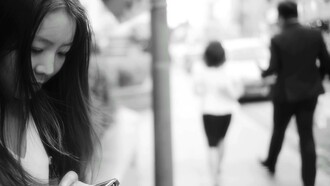The right to peaceful assembly and expression is a cornerstone of democracy and a crucial aspect of a free and open society. As one of the fundamental pillars of freedom of speech and opinion, it allows individuals to express their thoughts, beliefs, and concerns openly. It enables citizens to engage in public discourse, debate ideas, and contribute to the development of a vibrant and inclusive society, but it is also essential for political participation and civic engagement, both of extreme importance since they provide a platform for citizens to come together, voice their grievances, and advocate for social, political, or economic change. Through peaceful protests, rallies, and demonstrations, people can collectively address issues of public concern, influence decision-making processes, and hold their governments accountable. Giving citizens the freedom to express their views and assemble peacefully, enables them to challenge the status quo, expose corruption or wrongdoing, and demand greater transparency from those in power. Moreover, it promotes social cohesion and inclusivity, and allows citizens to challenge oppressive policies, demand reforms, and peacefully resist any attempts to suppress individual freedoms.
In many countries, this right is fortunately being quite respected. In many others, regrettably not – and Iran is one of them.
Here, the right to peacefully assembly and expression is severely restricted, and citizens is denied the opportunity to exercise their voices and participate in public discourse. The Iranian government has implemented these repressive measures to suppress dissent and control the flow of information. This all has happened following the Iranian Revolution in 1979, which led to the establishment of an Islamic Republic. Starting from here, there has been a significant crackdown on dissenting voices and a tightening of controls over public gatherings and free expression. In times of political unrest or mass protests, such as the widespread demonstrations following the disputed presidential elections in 2009, the Iranian government has intensified its suppression of peaceful assembly and expression. Here, the authorities have started employing tactics such as violence, mass arrests, internet censorship, and surveillance to stifle dissent and maintain their control. Activists, journalists, human rights defenders, and members of marginalised communities continue till these days to face harassment, arbitrary arrests, unfair trials, and imprisonment – and all this for expressing their political views or engaging in peaceful protests. The government's tight control over media, censorship of online platforms, and monitoring of internet activities does further restrict this freedom.
According to the World Report 2021 released by the non-governmental organisation Human Right Watch, in November 2019, Iran witnessed one of the most brutal crackdowns on protests, marked by security forces employing excessive and unlawful lethal force against demonstrators. Particularly targeting those blocking roads or engaging in confrontations, such as throwing stones or attempting to occupy public buildings, the authorities responded with a near-total shutdown of the internet across the country. According to Amnesty International, these protests resulted in the tragic deaths of at least 304 individuals. The head of Iran's parliamentary national security committee, Mojtaba Zonoor, claimed on June 1st that 230 people were killed during the protests, with a portion dying in direct confrontations with law enforcement and attacks against military locations. Despite these grave human rights violations, the Iranian authorities have not conducted detailed investigations or held anyone accountable for these abuses. Instead, the judiciary and intelligence agencies continue to exploit broadly defined articles of the penal code, such as "propaganda against the state," "assembly and collusion to act against national security," and "insulting the supreme leader," as tools to prosecute activists, dissidents, and human rights defenders.
In response to the demonstrations sparked by the downing of a Ukrainian airliner by the Islamic Revolutionary Guard Corps (IRGC) on January 8, authorities have taken legal action against at least 20 individuals. This incident escalated military tensions between Iran and the US, following the US drone strike in Baghdad on January 3rd, which resulted in the death of the commander of the IRGC's elite Quds force. Among those prosecuted, two prominent activists were sentenced to four years and eight months, and five years in prison, respectively. These sentences were based on nothing but their participation in the protests and their related posts on Twitter.
Till this time, the situation has not changed.
Over the last months, the death of Mahsa Amini, a 22-year-old Kurdish woman from Sanandaj in western Iran, who was killed after being arrested for not wearing the hijab correctly, caused the lidespread protests throughout the country, including in schools and universities. Authorities claimed that Amini died due to a medical condition that caused her to go into a coma shortly after her arrest, but her clearly family disputed this explanation. Human Rights Watch documented instances of security forces using shotguns, assault rifles, and handguns against protesters, even in largely peaceful and crowded gatherings in the capital. They fired upon demonstrators in many other cities as well, which resulted in numerous deaths and injuries. With the aim of making their voices heard, a total of 341 protestors have been reported death, including 52 children.
At the beginning of last year, labor union strikes and ongoing protests against rising prices faced violent suppression too. More than 69 workers' rights activists were arrested, with many subjected to violence, torture, and interrogations – and the authorities showing no willingness to investigate the serious human rights violations committed under their control. Repression against student activist intensified as well, with several facing prison sentences and threats of being prevented from continuing their education.
People are therefore constantly fighting and dying for their rights. In society, the impact of human rights violations such as the one against peaceful assembly and expression is profound. When a society tolerates or perpetuates such human rights abuses, it erodes trust, undermines social cohesion, and fosters a culture of fear and silence. This contribute to a breakdown of societal norms and values, hindering the development of a just and equitable society. The consequences are therefore far-reaching, affecting not only the immediate victims and their families but also the overall fabric of society.
In the face of these ongoing violations, the time for action is now. The suppression of voices not only deny individuals their fundamental human rights but also undermine the principles of democracy, equality, and justice. It’s important to recognize that the right to assemble and express oneself peacefully is the cornerstone of a vibrant society. It is incumbent upon the international community, civil society organizations, and concerned individuals to stand in solidarity with those individuals in Iran who are fighting for their rights. We must actively advocate for the protection of their freedoms and demand accountability for human rights abuses. Only by taking collective action there can be a future in Iran where the rights to peacefully assemble and express are upheld, fostering a society that embraces open dialogue, inclusivity, and the progress that comes with it.















